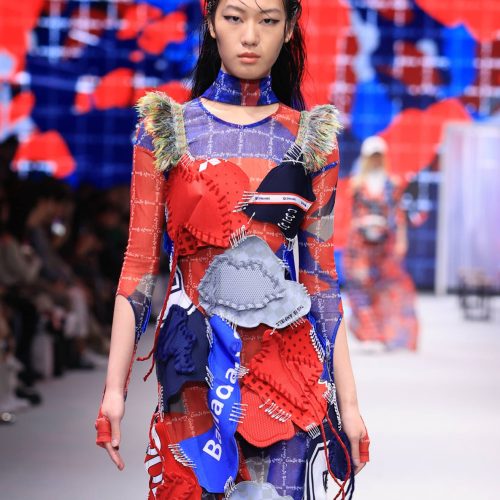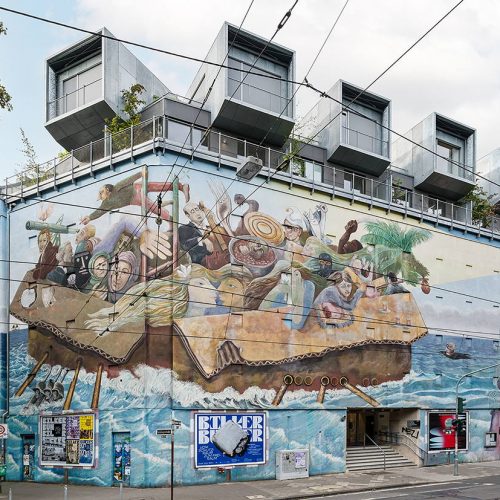Sustainability Is In Session | Paving The Way For Sustainable Fashion On and Off Campus
College students are getting crafty on their respective campuses, continually finding ways to break the standards of conventionality and to center sustainability in common university practice. Here, we discuss some of these amazing student-led initiatives and their sustainable impacts.
To receive the Luxiders newsletter, sign up here.
As tuition prices continue to rise exponentially, pivoting far above the line of what is normal or affordable, students are falling back on other, less traditional ways of cutting expenses. In a statistic released by Forbes, an alarming 72% of college students shopped fast fashion in 2022. It is a well established fact, by now, that fast fashion does a lot more harm than good – excessive water use; high energy consumption; generation of waste; toxic chemical release; unethical working conditions – these are the legacies of the supply and demand for cheap fashion.
Students across the world are beginning to rise to the occasion, attempting to off put their own environmental impacts through embracing more sustainable practices – especially when it comes to shopping. Deemed the “sustainability generation,” Gen Z’ers have emerged in troubled times as an essentially ecologically conscious generation; as a beacon of light in a world stuck in the shadow of fast fashion. A recent study suggests that 62% of Gen Z shoppers prefer to buy from sustainable brands, while 73% of Gen Z shoppers are willing to pay more for sustainable products. Along with millennials, Gen Z shoppers appear to most readily apply social and environmental values to their personal choices, making conscious shopping decisions on the basis of the content of the clothing available to them.
Perhaps unsurprisingly then, students on college campuses around the world are working to decrease the dependency on fast fashion models of overproduction and overconsumption. Here, we will get into some of the creative alternate solutions students are coming up with to reduce their collective footprint and shape the fashion industry (as well as the world, more generally) for the better.

© Olu Famule via Unsplash
CAMPUS THRIFT STORE
Thrifting has increasingly permeated mainstream shopping consciousness throughout the world. However, college campuses – where low cost fashion is arguably essential – don’t usually engage with these constructs, and don’t typically offer on-site thrifting opportunities for their students. In recognizing this gap, one determined student – Jaxon Davis of North Carolina State University (NCSU) – took measures into his own hands, opening a campus-wide thrifting experience where students could purchase sustainable and accessible clothing at a fraction of the cost.
The ultimate goal of the student-founded organization is to create a permanent and sustainable marketplace on campus where students can interact with sustainable concepts for shopping and consumption. So far, the organization has arranged several events to introduce the idea to the NCSU campus – including Vintage by the Pack, where 30 vendors visit campus grounds and set up pop-up vintage shops for the day, and a student-based pop-up thrift shop, held on a semester-basis, where students actually donate their own clothing for use. Both events were especially well received – the first Vintage by the Pack reeled in nearly $50,000 over the course of its 6 hour initiation, and the first student pop-up event saved about 1,500 articles of clothing from ending up in landfills.
SUSTAINABLE RUNWAY SHOW
For the second year in a row, the Orange Coast College (OCC) fashion department hosted its Green Coast Day fashion show, which is grounded in a motif that runs along the lines of “aiming to make sustainability the hottest trend on the runway.” Centered on sustainable, educational craft, the event featured environmentally-friendly runway looks designed by students, highlighting the university’s renown sustainability program. In commemoration of this year’s Earth Day, the event also included a marketplace where local, sustainable businesses offered a series of secondhand and upcycled products available for purchase.
The OCC fashion program is generally regarded as one of the most acclaimed sustainability campuses in the fashion business – in addition to offering traditional courses such as “Fashion Merchandising” and “Industrial Sewing Techniques,” students can also pick from more niche courses, like “Apparel Industry Sustainability: the Environment, Ethical Business Practices & the Law” and “Sustainability & Responsibility in Fashion Design, Manufacturing and Branding.” Through these courses, students can learn about employing responsible environmental and social practices within their eventual fashion businesses or brands – skills that are conveniently left out by the majority of fashion schools.

© Priscilla du Preez via Unsplash
SUSTAINABLE FESTIVAL
The Centre for Sustainable Fashion (CSF) at London College of Fashion has long been a preeminent institution in the onset of sustainable practice both on campus and in the fashion industry. In recognition of 15 long years of groundbreaking research and work at the intersection of sustainability and fashion initiatives, the college hosted a festival in east London – titled “Imagining Possibilities” – that celebrated the school’s accomplishments, offering a dynamic program where people could learn about their role in shaping a more sustainable fashion industry.
The event included a series of active participant workshops, discussions, and experiences that allowed people to engage with radical constructs about environmental and social justice within the fashion realm. Open to students, faculty, and local communities, the “Imagining Possibilities” festival provided an exciting way to engage students across disciplines, as well as commemorate the work of a pioneer institute – a pillar of sustainable practice in an unsustainable industrial landscape.
CLOTHING SWAPS
In April 2024, a group of three students co-founded Minnesota state’s first ever clothing drive. An example of advocacy in its purest form, Sophie Bowe, Abby Johnson, and Caitlin O’Brien originally proposed the idea as a class project for their feminist activist course, recognizing the impact of fast fashion on social and, particularly, women’s rights issues.
For a month, Bowe, Johnson, and O’Brien collected donations from their university’s student body and staff, specifically in the form of accessories like hats, gloves, and handbags. These pre-loved products – through a clothing swap of sorts – were then made available to students for free, with an intention of making students aware of the power and potential of secondhand shopping. More so than anything else, this was a trial run to recruit people into the art of shopping sustainably. Any products not secured by students were, rather than discarded to end up in a landfill, passed onto a nonprofit organization, CADA (Committee Against Domestic Abuse), serving victims of domestic or sexual abuse.

© Sasha Matveeva via Unsplash
The success of these and other student-led initiatives echo an importance – one of accessible sustainability – that is often overlooked on college campuses otherwise. Through continuing to recognize and celebrate these heroic actions and incentives, we show our solidarity with Gen Z pioneers – a generation of individuals who have taken it upon themselves to reverse the damage caused by their preceding generations.
Highlight Image:
@ Ryan Jacobson
+ Words:
Tori Palone
Luxiders Magazine




